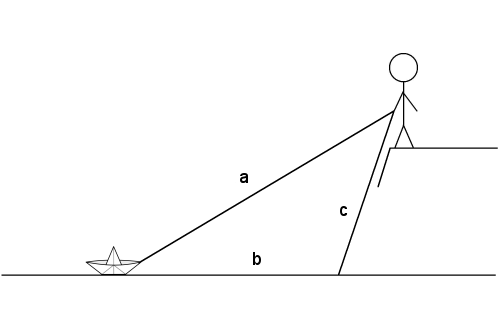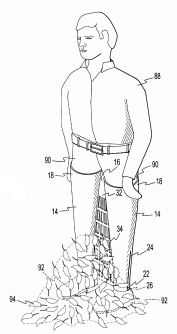
A boy at the edge of a pond pulls a toy boat ashore. If he pulls in one yard of string, will the boat advance by more or less than one yard?
Surprisingly (to me), it will cover more than one yard. Because the boy is above the level of the water, he won’t pull in the entire length of string — length c will remain when the boat reaches shore. The length he’ll pull in, then, is a – c.
In any triangle, the sum of the lengths of any two sides must be greater than the length of the remaining side, so b + c > a and b > a – c — so the boat travels a greater distance than the length of string pulled in.





